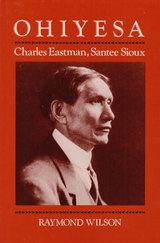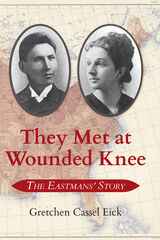
in Santee, came of age during a period of increasing tension and violence between
Native and "new" Americans. Raised to become a hunter-warrior, he
was nevertheless persuaded by his Christianized father to enter the alien world
of white society. A remarkably bright student, Eastman graduated from Dartmouth
College and the Boston University School of Medicine. Later on he served as
government physician at the Pine Ridge Agency (and tended casualties at Wounded
Knee), as Indian Inspector for the Bureau of Indian Affairs, and as Indian secretary
for the YMCA, and helped found the Boy Scouts of America.
Concurrently, however, he also worked
on special congressional legislation to settle Sioux claims and was a charter
member and later president of the Society of American Indians. It was his writing,
though, which most clearly established Eastman's determination to hold on to
his roots. In works such as Indian Boyhood, The Soul of the Indian, and
Indian Heroes and Chieftains he reconfirmed his native heritage and tried
to make white society aware of the Indians' contribution to American civilization.

Carlson argues that by drawing on the conventions of early colonial treaty-making, nineteenth- and early twentieth-century Indian autobiographers sought to adapt and redefine the terms of Indian law as a way to assert specific property-based and civil rights. Focusing primarily on the autobiographical careers of two major writers (William Apess and Charles Eastman), Sovereign Selves traces the way that their sustained engagement with colonial legal institutions gradually enabled them to produce a new rhetoric of "Indianness."

READERS
Browse our collection.
PUBLISHERS
See BiblioVault's publisher services.
STUDENT SERVICES
Files for college accessibility offices.
UChicago Accessibility Resources
home | accessibility | search | about | contact us
BiblioVault ® 2001 - 2024
The University of Chicago Press









